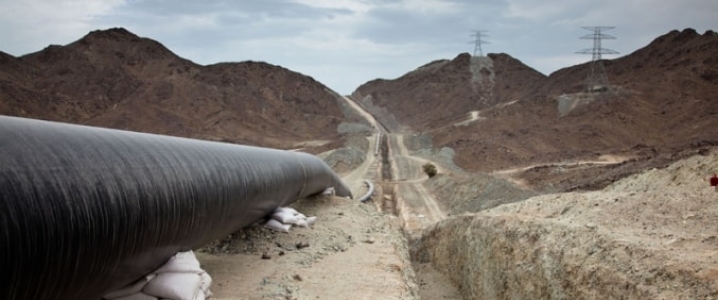Natural gas exporters want to link the prices for their product to oil benchmarks to keep revenues predictable and supply steady, the new head of the Gas Exporting Countries Forum, Yury Sentyurin said in an interview with Bloomberg.
"Consumers should understand the peculiarities which producers face. Security of investment and supply can only be on the basis of long-term contracts closely connected to oil prices so we could plan further investments into crucial infrastructure."
At the moment, many natural gas buyers choose between formulas used to price the commodity in the United States and Australia, both major exporters, but indexing the price to oil would improve revenue visibility.
Back in 2015, the Energy Information Administration noted that gas prices in Asia tend to be most commonly indexed to crude oil benchmarks, but this is now changing as a growing number of buyers prefer to buy gas on spot markets.
According to Sentyurin, the price indexing is necessary in light of the need to increase global natural gas supply as demand grows by an estimated 1.6 percent annually until 2040. This growth, he added, will require some US$8 trillion in investments.
Interestingly, the GECF’s secretary general also said there is no LNG glut at the moment, nor is there likely to be one in the foreseeable future. A Columbia University study released last month suggested that indeed there is no real oversupply of LNG as smaller buyers are coming to the fore to buy cargoes of the fuel that would have otherwise remained unsold, taking advantage of lower prices.
These lower prices resulted from the wave of new production that came on stream in the last year or so, and there is more coming in the next couple of years. The GECF includes Russia, Qatar, Iran, Algeria, as well as Egypt and the UEA, although the organization has identified another 18 gas-producing countries that could become members. The condition to join would be for these prospective members to reject non-UN sanctions against any of the existing members.
By Irina Slav for Oilprice.com
More Top Reads From Oilprice.com:
- OPEC Deal In Jeopardy As Iran And Saudi Arabia Square Off
- This Oil Major Just Invested In Nuclear Fusion Energy
- Schwarzenegger Accuses Big Oil Of 1st Degree Murder


















Gas-indexation to spot prices will not necessarily result in lower prices, but will definitely create problems of price volatility which will have as a consequence the inclusion of a large risk premium in gas prices at the expenses of consumers.
Gas production costs are in fact linked to oil field development costs and the oil and gas companies’ strategies to develop the one or the other type of field. If average gas prices and producers’ revenues are not lucrative enough, they would prefer to invest in developing new oil fields than new gas fields. So in fact a deep-rooted linkage does exist.
Thus the replacement of oil-indexed price with a gas-indexed price would have the unfortunate effects of introducing higher risks than it is presently with oil indexation. Long-term, oil-indexed contracts will remain the cornerstone of security of supply for the import-dependent countries.
Dr Mamdouh G Salameh
International Oil Economist
Visiting Professor of Energy Economics at ESCP Europe Business School, London